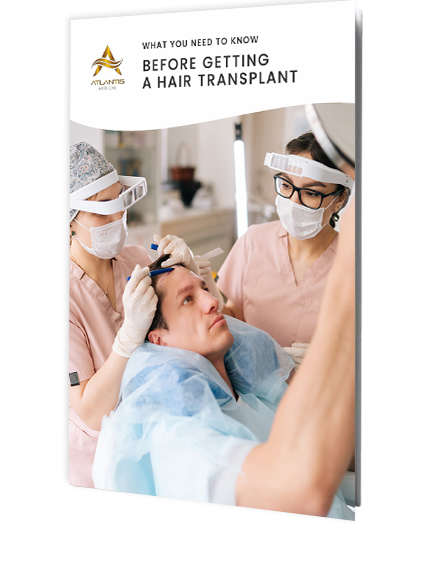Why Is My Hair Falling Out? The Truth Behind Common Causes
- October 20, 2025
- Dr. Vikram Jayaprakash
Last updated on October 27, 2025
Table of Contents
ToggleExploring the Most Common Reasons Behind Hair Falling Out
Finding strands of hair on your pillow, in the shower, or caught in your brush can be unsettling. It’s easy to wonder, ‘Why is my hair falling out?’ and whether it signals something more serious. While shedding is part of the natural growth cycle, changes in the amount or pattern of loss often make people take a closer look at their scalp health.
Hair loss is surprisingly common, affecting both men and women at different stages of life. Sometimes it’s temporary, triggered by stress, illness, or hormonal shifts. In other cases, it develops gradually due to genetics or long-term conditions. Understanding the most frequent causes can help you separate everyday shedding from issues that may need professional advice or treatment.
What’s Normal Hair Shedding?
Hair naturally grows in cycles of growth, rest and shedding. It’s typical to lose up to 100 hairs each day as part of this process, and in most cases, new strands replace those that fall out. If you start to see more noticeable thinning, a widening part line, or patches of missing hair, it may point to something beyond ordinary shedding. These changes are usually the first signs that it’s time to look at possible underlying causes.

Common Causes of Hair Falling Out
Hair loss can occur for many different reasons, and the triggers often vary from person to person.
Genetics
The most common form is androgenetic alopecia, also known as male or female pattern hair loss. In men, this typically leads to a receding hairline or thinning at the crown, while women may notice diffuse thinning across the scalp. This condition is inherited and linked to sensitivity to the hormone DHT, which can gradually shrink hair follicles and shorten the growth phase.
Hormonal Changes
Hormones have a strong influence on hair health. Pregnancy, postpartum changes, menopause, thyroid imbalances and conditions like polycystic ovary syndrome (PCOS) can all trigger hair thinning. In some cases, the loss is temporary, while in others it may be ongoing without appropriate management.
Stress and Trauma
Periods of high emotional stress, illness, or surgery can shock the body into shedding more hair than usual. This is known as telogen effluvium and often comes on suddenly, sometimes causing handfuls of hair to fall out at once. While this type of hair loss is usually temporary, recovery can take several months after the stressor resolves.
Nutritional Factors
Hair follicles require nutrients to function well. Deficiencies in iron, vitamin D, zinc, or protein can affect the hair cycle and lead to thinning. Strict diets or poor nutrition can also reduce the supply of these essential nutrients, contributing to ongoing shedding or slower regrowth.
Medical Conditions
Some medical issues interfere with hair growth directly. Autoimmune conditions such as alopecia areata cause the immune system to target follicles, producing patchy bald spots. Chronic illnesses, scalp infections and certain medications may also play a role. Addressing the underlying condition is often the key to stabilising hair loss.
Lifestyle and Styling Practices
Everyday habits can affect the health of your hair. Excessive heat styling, harsh chemical treatments, or wearing tight hairstyles may weaken follicles or cause breakage. Over time, this can result in traction-related thinning that resembles true hair loss.
When Should You Be Concerned?
A small amount of daily shedding is normal. However, it may be time to seek professional advice if you notice:
- Rapid or excessive shedding
- Patchy bald spots
- Hair loss lasting several months
- Thinning is accompanied by scalp discomfort or other symptoms
Early evaluation can provide clarity and guide whether treatment is appropriate.
Managing Hair Loss: What Can Help
Simple measures such as maintaining a balanced diet, reducing stress and caring for your scalp gently can all support healthier hair. For those with ongoing or progressive loss, professional treatments may also be considered.
At Atlantis Medical, non-surgical hair loss treatment options include:
- Growth Factor Therapy: Designed to support follicle health and stimulate activity at the scalp.
- Low-Level Laser Therapy (LLLT): Uses light-based technology to improve scalp circulation and encourage weakened follicles.
- Hair Loss Medication: Targeted medications work to slow progression and support healthier, more resilient hair growth.
These options can also be combined in a tailored plan after a thorough consultation, ensuring that treatment aligns with the underlying cause and individual needs. In more advanced cases, surgical options such as hair transplants may also be considered, offering another pathway for those seeking a longer-term solution.
Final Thoughts
If you’ve been asking yourself, ‘Why is my hair falling out?’, the answer could range from something temporary, like stress or diet, to more persistent factors such as genetics or hormonal changes. While not all causes require treatment, seeking professional advice can help identify the reason and guide you towards the most suitable options.
At Atlantis Medical, we provide personalised, non-surgical treatment pathways designed to address the unique causes of hair loss. A consultation can help determine the next steps and create a plan that supports long-term scalp and hair health.
How to Book a Consultation
Booking your consultation is simple.
- Call us on (03) 9070 5234
- Contact us via our website
- Email us at enquiries@atlantismedical.com.au
- Or visit us at Level 2, 148 Glenferrie Road, Malvern, Vic 3144
Opening Hours
Mon – Fri: 8:30am – 5:00pm
Sat – Sun: Closed
Frequently Asked Questions
Why is my hair falling out so much all of a sudden?
Sudden hair loss is often linked to stress, illness, or a condition called telogen effluvium, which temporarily disrupts the growth cycle. In most cases, hair will gradually return to normal once the trigger has passed.
What deficiency causes hair loss?
Iron deficiency is one of the most common nutritional causes of hair thinning, though low levels of vitamin D, zinc and protein may also contribute. A simple blood test can help identify if a deficiency is playing a role.
Can stress cause hair loss?
Yes, physical or emotional stress can push more hairs into the shedding phase, leading to noticeable thinning. This type of loss is usually temporary, though it may take several months for regrowth to appear.
Does postpartum hair loss grow back?
Postpartum hair loss is typically caused by hormonal shifts after childbirth and is considered temporary. Most women see their hair return to normal growth within six to twelve months.
How do you know if hair loss is permanent?
Permanent hair loss is more likely when thinning follows a predictable pattern, such as male or female pattern baldness. A professional consultation can confirm the cause and outline appropriate management options.
Any surgical or invasive procedure carries risks. Before proceeding, you should seek a second opinion from an appropriately qualified health practitioner.

About the Author
Dr. Vikram Jayaprakash
Dr. Vikram Jayaprakash is the Clinical Director of Atlantis Medical, one of Melbourne’s premier hair restoration clinics. Trained at the University of Southampton Medical School, he spent over a decade working alongside Dr. Russell Knudsen at the renowned Knudsen Clinic before establishing his own practice. As one of only three doctors in Australia to hold Board Certification from The American Board of Hair Restoration Surgery and one of two to attain Fellowship status with the International Society of Hair Restoration Surgery, Dr. Jayaprakash brings unparalleled expertise to every procedure.
Categories
Categories
- Female Hair Loss (7)
- General (3)
- Hair Health (11)
- Hair Loss (16)
- Hair Loss Treatment (10)
- Hair Transplant (20)
- Male Hair Loss (9)
- Non Surgical Treatments (1)
- Scalp Health (6)






